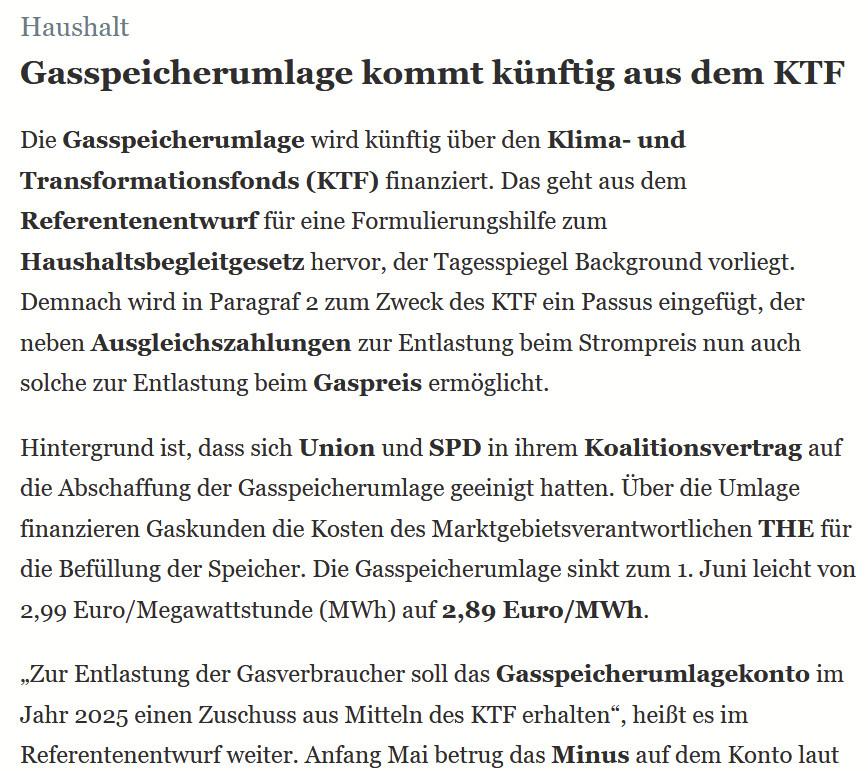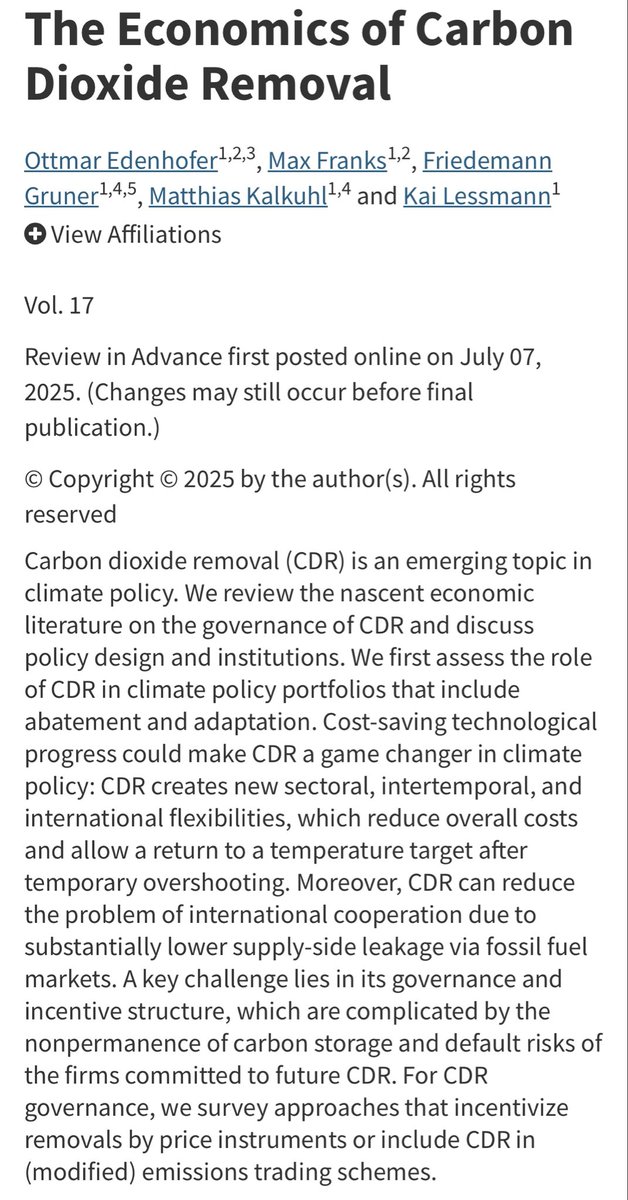
Matthias Kalkuhl
@mkalkuhl
Dept Head Climate Economics & Policy @PIK_Climate, Professor on Climate & Growth @cepa_unipotsdam, working on #CarbonPrice, #Welfare, Policy Dedign
ID: 3105497818
https://www.mcc-berlin.net/ueber-uns/team/kalkuhl-matthias.html 22-03-2015 18:37:31
987 Tweet
1,1K Followers
451 Following

Carbon removal #CDR creates new sectoral, intertemporal & international flexibilities in #Climate change mitigation and can reduce the problem of international cooperation. Working paper by Ottmar #Edenhofer Max Franks @fvgruner Matthias Kalkuhl Kai Lessmann. cesifo.org/en/publication…


🌎 Planetarische Müllabfuhr – Gamechanger der Klimapolitik? In ihrem Beitrag diskutieren Ottmar Edenhofer Potsdam-Institut für Klimafolgenforschung PIK und Matthias Kalkuhl die Notwendigkeit, CO2 aus der Atmosphäre zu entfernen, um die #Klimaziele zu erreichen. Jetzt lesen 👇 degruyter.com/document/doi/1…

New CEPR DP19835 The Economics of Carbon Dioxide Removal: A Governance Perspective Ottmar Edenhofer, Max Franks, Friedemann Gruner, Matthias Kalkuhl, Kai Lessmann Potsdam Institute for Climate Impact Research PIK MCC Berlin TU Berlin Universität Potsdam ow.ly/rRif50UAWga #CEPR_PE #CEPR_CCE #EconTwitter
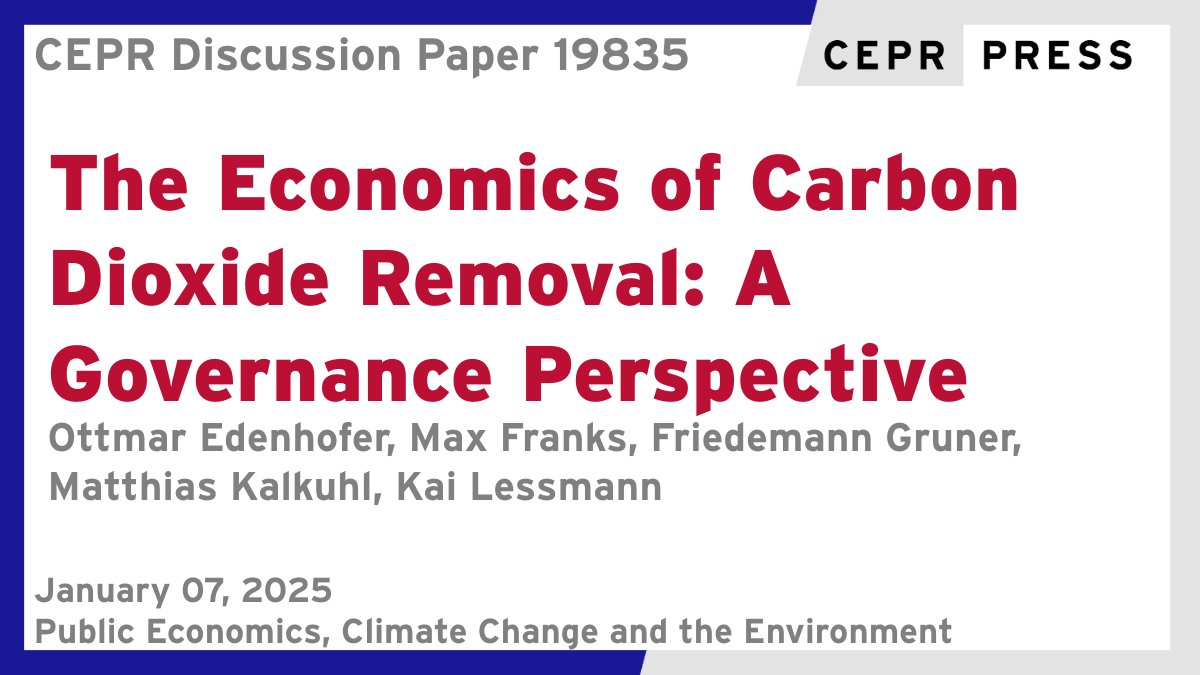


Unsere ifo Institut Studie Reformvorschläge oder Steuergeschenke? Die Wahlprogramme 2025 auf dem Prüfstand ist jetzt online: ifo.de/pressemitteilu… Steuerrechner von ZEIT ONLINE dazu: zeit.de/wirtschaft/202… Mark Schieritz Dana Hajek


TV-Show: Wie #Klimageld Klimaschutz sozial gerecht ausbalanciert Mai Thi Nguyen-Kim auf ZDF neo, gestützt auf das PIK: mit unseren Daten zum CO₂-Preis-Rechner und mit Einspielern von Matthias Kalkuhl. „Wenn der CO₂-Preis hoch wird, müssen wir zielgenauer entlasten.“ zdf.de/show/mai-think…

Ich teile ja die Sorge. Aber die im Kommentar mit Verweis auf RWI Leibniz-Institut genannte Zahl von 750 Mrd. EUR Einsparungen durch eine Verschiebung der Klimaneutralität um 5 Jahre fand ich enorm hoch. Habe deshalb die Quelle näher angeschaut.


If EU countries reduce their world market demand by 1 euro, Russia loses 13 cents. This reduces the pressure on EU defense spending by 37 cents. PIK co-authored Kiel Policy Brief Kiel Institut on climate policy, energy prices and geopolitics. Matthias Kalkuhl pik-potsdam.de/en/news/latest…
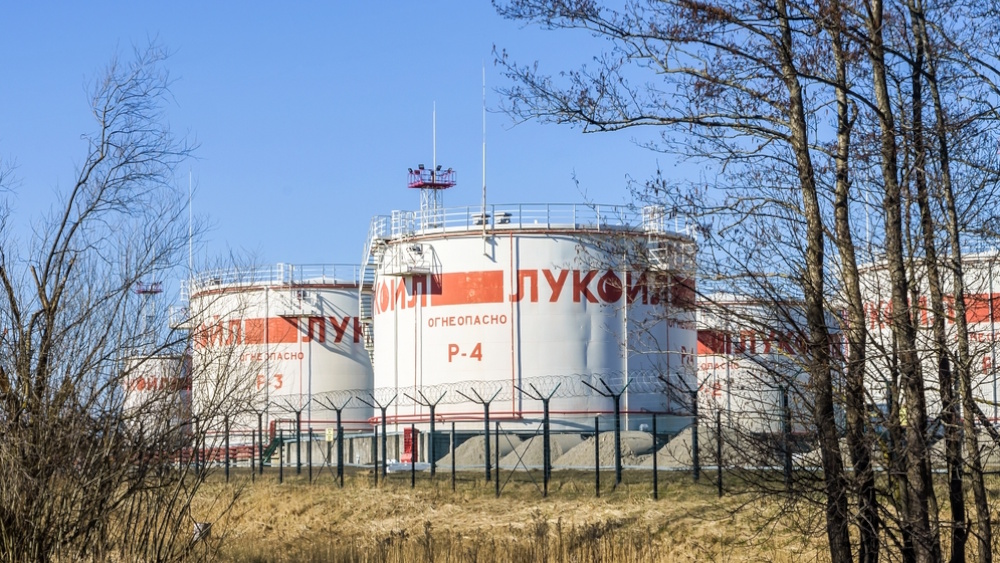

Worth considering this IfW/PIK Kopernikus-Projekt Ariadne zur Energiewende policy brief in this context: "Die sicherheitspolitische Dividende von Klimapolitik" econstor.eu/handle/10419/3…
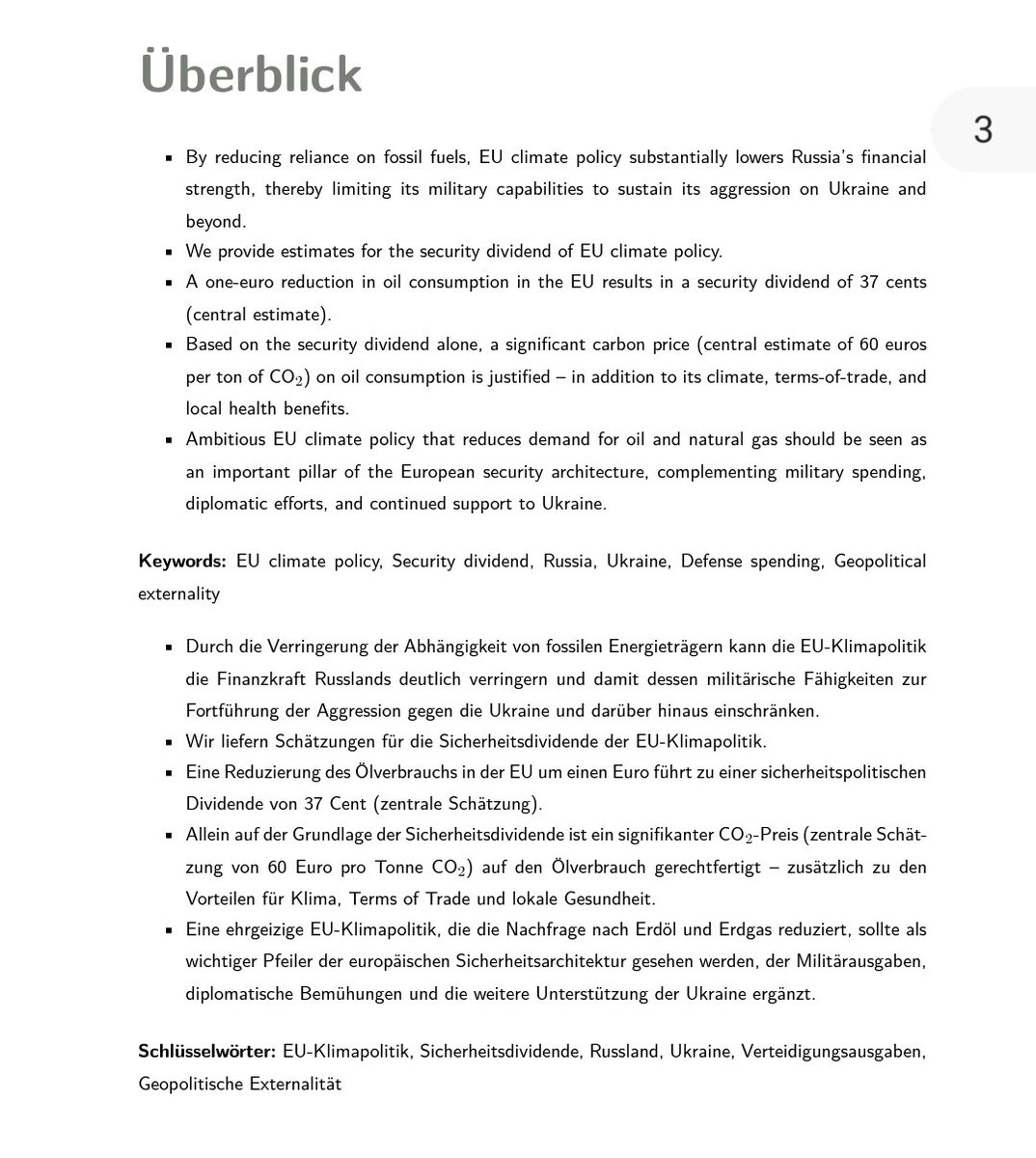



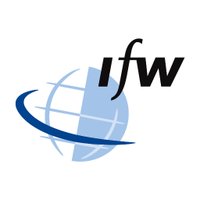
Climate finance is stuck—pledges aren’t matching contributions, especially for low- & middle-income countries (LMICs). A new Kiel Working Paper flips the script: it’s in the EU’s own interest to act. Not charity—strategy. 👇 The paper by Ottmar Edenhofer, Matthias Kalkuhl & Lennart

